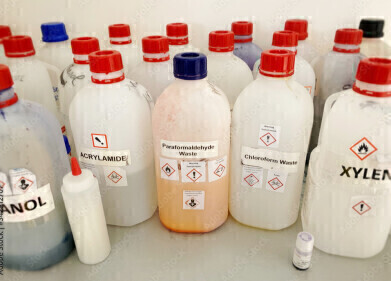Supercritical fluid (SFC), green chromatography
Is Less Exhaled Hydrogen a Marker of Heart Failure?
Nov 02 2018
The heart has a simple job, it is basically a pump – pumping blood around our body. This transports oxygen and nutrients to our muscles and organs so that they can work. When the heart doesn’t work as it should, it cannot pump as efficiently – the knock-on effect is that less blood at a lower pressure gets pumped to our muscles and organs. This means they might not get enough oxygen to work effectively.
One condition that affects the heart – and thus the rest of the body – is chronic heart failure (CHF). CHF is a worldwide problem which has significant clinical and economic burdens. A recent paper published in the British Medical Journal ‘openheart’ reports on an investigation to find an improved diagnostic tool for CHF by measuring the exhaled hydrogen levels using chromatography.
What is CHF?
Chronic heart failure – also known as congestive heart failure – doesn’t mean that the heart has stopped working, only that is not working as efficiently as it should and might need some help. It is a condition that can affect anyone but is most common in older people. It is a problem that has developed over a period of time – as opposed to an acute condition – and is only likely to get worse over time.
Typical symptoms include breathlessness, feeling tired most of the time, and swollen ankles and legs. According to the NHS website, there are many different conditions that can lead to CHF including:
- Coronary heart disease – reduced blood flow in the arteries supplying the heart leading to angina or heart attack,
- High blood pressure – this can put extra strain on the heart forcing it to work harder, and
- Cardiomyopathy – conditions affecting the heart muscle,
- Heart rhythm problems, and
- Congenital heart disease – birth defects affecting the normal working of the heart.
CHF – chromatography indicates the severity?
Knowing the severity of CHF in a patient can help physicians determine the best treatment plan. The work referenced above in the journal ‘openheart’ investigated whether the measurement of exhaled hydrogen could be an indicator of CHF severity. It is thought that oxidative stress might be associated with CHF, with stress resulting from a change in reactive oxygen species (ROS). The team speculated that an increase of ROS increases the consumption of hydrogen, so reducing the amount exhaled.
The team used chromatography to measure the exhaled hydrogen before and after sleep to see if there was any reduction in patients with CHF. As an analytical technique, chromatography has many different applications as discussed in the article, Column Technology for Achiral SFC Separations. The team report that exhaled hydrogen did drop during sleep and that change in exhaled hydrogen could be a marker for CHF severity.
Events
Feb 03 2025 Dubai, UAE
Feb 05 2025 Guangzhou, China
Mar 01 2025 Boston, MA, USA
Mar 04 2025 Berlin, Germany
Mar 18 2025 Beijing, China









.jpg)




